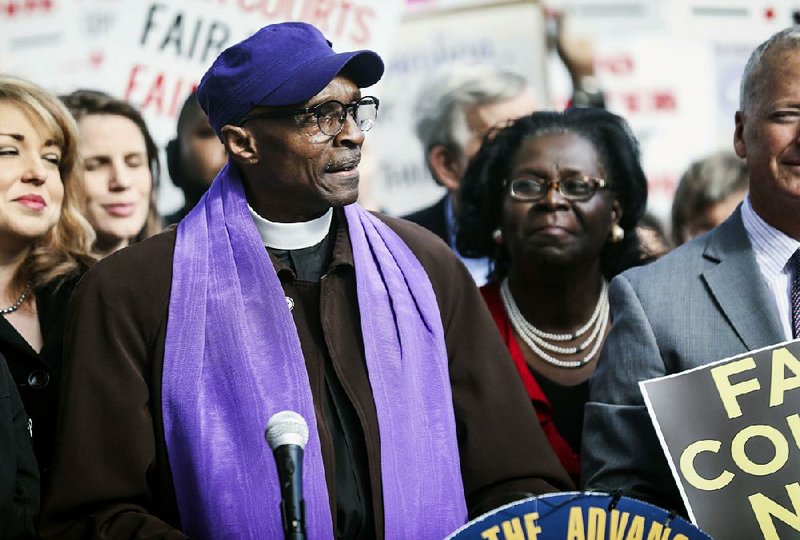RALEIGH, N.C. -- A federal court's decision to strike down North Carolina's congressional map has cast uncertainty over the state's 2018 U.S. House races and thrust the state into a national debate over reducing the role of partisanship in drawing electoral districts.
The state's Republican leaders have vowed to seek a delay to the court's order that they draw new district lines in the coming weeks. Because partisan gerrymandering cases from other states are before the U.S. Supreme Court, election law experts said, it's more likely that the justices will postpone the effect of the North Carolina ruling.
Either way, Tuesday's court decision is expected to affect how the state picks members of Congress. New maps would send candidates scrambling and could create a more favorable environment for Democrats, who hold only three of the state's 13 U.S. House seats.
But even if the redrawing is postponed, a political scientist said resentment of "greedy" Republican maps could aid left-leaning candidates now armed with blunt language from federal judges.
Republican legislative leaders said they would quickly appeal the decision to the U.S. Supreme Court, seeking to delay its implementation.
By contrast, another federal court ruled Wednesday that Pennsylvania can keep its congressional map, rebuffing voters who argued it constituted partisan gerrymandering.
In the North Carolina case, all three judges agreed partisan motives behind the districting plan violated the Constitution's equal protection provision because it took the power to elect representatives away from the people. One judge dissented from the majority's conclusion that the map also violated the First Amendment rights of Democrats in each district.
The ruling was hailed by Democrats and voting-rights activists, including the Rev. Anthony Spearman, leader of the state NAACP, who called it "a mammoth decision."
The 4th U.S. Circuit Court of Appeals panel ordered lawmakers to approve another set of districts by Jan. 24.
Sen. Ralph Hise of Mitchell County, the Senate's Redistricting Committee chairman, said it seemed impossible to draw new maps by the judges' deadline given all of the new restrictions placed on legislators by Tuesday's 200-page ruling.
A Section on 01/11/2018
